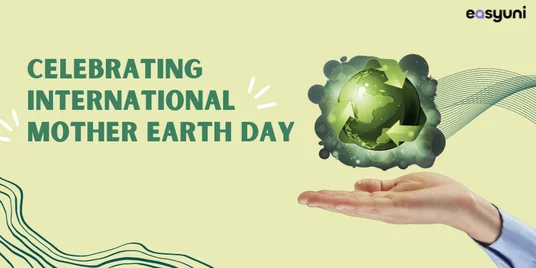
MSc Livestock Production Science

Course overview
| Qualification | Master's Degree |
| Study mode | Full-time, Part-time |
| Duration | 1 year |
| Intakes | |
| Tuition (Local students) | Data not available |
| Tuition (Foreign students) | $ 14,203 |
Admissions
Intakes
Fees
Tuition
- Data not available
- Local students
- $ 14,203
- Foreign students
Estimated cost as reported by the Institution.
Application
- Data not available
- Local students
- Data not available
- Foreign students
Student Visa
- Data not available
- Foreign students
Every effort has been made to ensure that information contained in this website is correct. Changes to any aspects of the programmes may be made from time to time due to unforeseeable circumstances beyond our control and the Institution and EasyUni reserve the right to make amendments to any information contained in this website without prior notice. The Institution and EasyUni accept no liability for any loss or damage arising from any use or misuse of or reliance on any information contained in this website.
Entry Requirements
- A good BSc Honours degree (2.2 or above) in a related science subject such as animal science, agriculture, biological science, zoology, veterinary science or other appropriate life science degree.
- Applicants with BSc (Hons) 3rd class pass and with extensive industrial experience may also be considered for the Masters programme.
English language requirements
If you do not have English as a first language, you will normally be required to demonstrate an IELTS overall score (or equivalent) of:
- 5.5 with a minimum of 5.0 in all elements for a Further Education course
- 5.5 with a minimum of 5.0 in all elements for a Foundation degree, Higher Certificate or Higher Diploma
- 6.0 with a minimum of 5.5 in all elements for a degree
- 6.5 with a minimum of 5.5 in all elements for a postgraduate degree
If you have lower scores, you may be accepted onto a Pre-sessional English Language course, which can lead to entry to the appropriate programme of study.
Curriculum
SEMESTER ONE
- Research Methods (Postgraduate) - This module begins with personal development planning (PDP) in which students will identify an appropriate research approach in the context of their individual aspirations and, where applicable, their professional role. The module introduces students to research and research methods from the perspectives of the researcher, research manager or managerial user. The module will discuss the research process of: identifying issues and problems; specifying research; collecting and processing primary and secondary data and information; analysing findings and producing conclusions, recommendations and suggestions for further investigation. Emphasis will be placed on methods that are objective, systematic, reliable, valid, ethical, effective and efficient. Guidance will also be given on the preparation of research papers and reports. This module will prepare students for dealing with research in all modules and in particular the Dissertation module. Taught postgraduates from all disciplines will initially share a generic overview that is appropriate for a postgraduate understanding of research and the methods that underpin it. Thereafter, the students will devolve to tutors in their discipline to deal with the curriculum content in greater, contextualised detail. The greater part of the assessment will be applied to learning from this second part of the module.
- Animal Genetic Resources - This module is designed to provide the underpinning scientific principles needed for modules in semester B. Students will be introduced to the physiology of reproduction in animal species, wild, captive and livestock breeding programmes, and the associated genetic and reproductive technologies. Topics covered will include diverse issues such as conservation genetics, behavioral genetics, and managing small population sizes with limited genetic resources.
- Advanced Animal Production - This module introduces students to the concept of a system and its associated inputs, outputs, boundaries and feedback loops all within a livestock production framework. The module then focuses on production systems in industrial and developing countries and associated topical issues such as anthelmintic resistance, development of new technology and increased productivity alongside issues such as marketing of livestock products and alternative livestock. The module will enhance students’ awareness of livestock production principles and systems inclusive of current topical research and develop approaches for applying scientific principles more effectively in practice in the wide spectrum of global conditions and challenges.
- Animal Nutrition Science - This module provides an understanding of the biochemistry of digestion and absorption and the subsequent post-absorptive metabolism of important macro- and micronutrients. The module will examine the biochemical functions of vitamins and minerals and the biochemical basis of their associated toxicity and deficiency symptoms. The module will illustrate the biochemistry and control of important productive processes such as growth, lactation, egg production and in doing so will demonstrate the integration of metabolic processes. It will also examine the biochemical consequences of inappropriate nutrition and links to metabolic disorders.
SEMESTER TWO
- Current Issues in Animal Science - The module is designed to enable students to identify and investigate current issues in animal science and to develop an enhanced appreciation of the opportunities and challenges facing the various parts of the animal sector. The potential areas covered range from topical issues in companion animal and farmed livestock to those in wild animals both in zoos and wild in their natural habitats. The module also aims to critically evaluate interrelationships between the various aspects of animal science such as nutrition, behaviour, welfare, human and animal health, the environment and sustainable resource management.
- Livestock Health and Welfare Management - This module focuses on production animal management through the application of data and case studies to livestock, health, welfare and production issues. Detailed case studies using the College Farm enterprises will be undertaken coupled with the use of external data, specifically for dairy cow related issues. Students will also gain knowledge of designing applied research projects at farm level through assessments and practical sessions.
- Sustainable Livestock Production - This module will consolidate and deepen knowledge of livestock production systems and associated issues gained in Advanced Animal Production (H0270251). It introduces students to the concepts of sustainability and indicators of sustainable livestock production toward 2050 against a background of predicted population growth and potential changes in land use. The overarching theoretical frameworks will be macro and micro –economics, policy, indicators of sustainable development relevant to global livestock production and agri-environmental interactions. The module will adopt a global approach to livestock production and its associated cultural and socio- economic issues in industrialized and developing countries. Students will be able to focus their studies on their own particular countries and associated livestock issues through the proposed assessments (both formative and summative).
- Livestock Feeds and Rationing - This module provides the student with an understanding of the nutritional requirements of the major species of farm animals. This is done by laboratory examination of the chemical composition and nutritive value of a wide range of animal feedstuffs and developing theoretical and practical experience of the way in which this knowledge can be used in the formulation of animal diets in different production systems.








